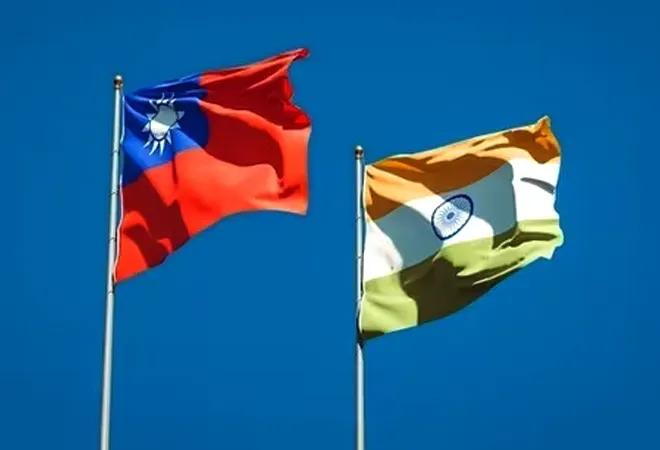WNAM INVESTIGATIVE REPORT: As Taiwan gradually settles in its new leader, the island’s foreign relations may suffer a major blow in the days ahead. Commercial and investment interests are in the line of the fire, in particular. And to pinpoint one all-important sector, Taiwan’s ambitions to become a major player on the global semiconductor horizon may suffer a damaging beating.
Insider accounts from India reveal that the Enforcement Directorate (ED) and Income Tax Department (ITD) that come under the South Asian country’s Ministry of Finance, have recently been probing matters related to several Taiwanese companies working in the Indian territory. These include electronics manufacturers such as Foxconn, Pegatron and Taisys – and the probe revolves mainly around their alleged evasion of taxes and duties. Those with insights share that some companies were found to be involved in tax evasions either directly or through their proxies.
For instance, according to a government official, ED has recently raided Pegatron’s offices in Mombai, Maharshtra and summoned its directors for further investigation. Findings so far tell that the company’s evasion of duty was manipulated by under-valuing or extending credit beyond permitted limits under India’s FEMA 1995 law. The reports are now at an advanced stage and are expected to be submitted to the Ministry of Corporate Affairs for further action.
As per a government official who wishes to remain anonymous, the probe is leading the Union Government of India to a situation of possibly de-registering these companies in India and all system/computer-based equipment or capital goods will be returned post thorough examination, which will ensure data leakage is close to zero.
So transpiring, it will a complete reversal of the developments in the recent past that both New Delhi and Taipe have been boasting as major diplomatic and commercial successes; and some Indian analysts have went on to label the same as a major new beginning.
India and Taiwan have been enhancing their cooperation particularly in electronic and semiconductor industries since Covid-19 pandemic when both of them, with lengthy negotiations, decided on shifting supply chains of critical goods from China. Notwithstanding that Beijing’s moves against some Taiwanese companies were genuine and based on ground realities – which at that time India and its biased media had highlighted in a very negative way.
Foxconn, an electronics giant, since then has closed its factory in China last year and transferred massive infrastructure and facilities to India. In February this year, Indian cabinet also approved a deal between country’s Tata Group and Taiwan’s Powerchip to establish $11bn semiconductor fabrication facility – India’s first – in Gujarat, home state of Narendra Modi who is seeking his third term as PM.
While Foxcoon has invested heavily in the region, the company is facing various challenges such as protests from workers over exploitation and suppression of their rights, demonstrations against deterioration of environment and the increasing negative impact on agriculture and livestock by disposal of electronic and chemical waste into nearby water bodies.
Recently, a Taiwanese minister’s racist remarks about Indian migrant workers also sparked huge criticism in media, and it cannot be ruled out whether Indian moves are a response by country’s authorities who themselves are dominated by utterly nationalist Hindutva ideology that finds it hard to tolerate foreigners.
It is believed by many in India that the measures to safeguard concerned people’s livelihood have been lacking due to the company’s (Foxconn) intimate relationships with federal and state governments of India. The raids and probes at this point of time may indicate the ‘seriousness’ of Indian authorities to address her citizens’ concerns and to keep distance with Taiwanese business entities – at least to show to their public at the moment.


